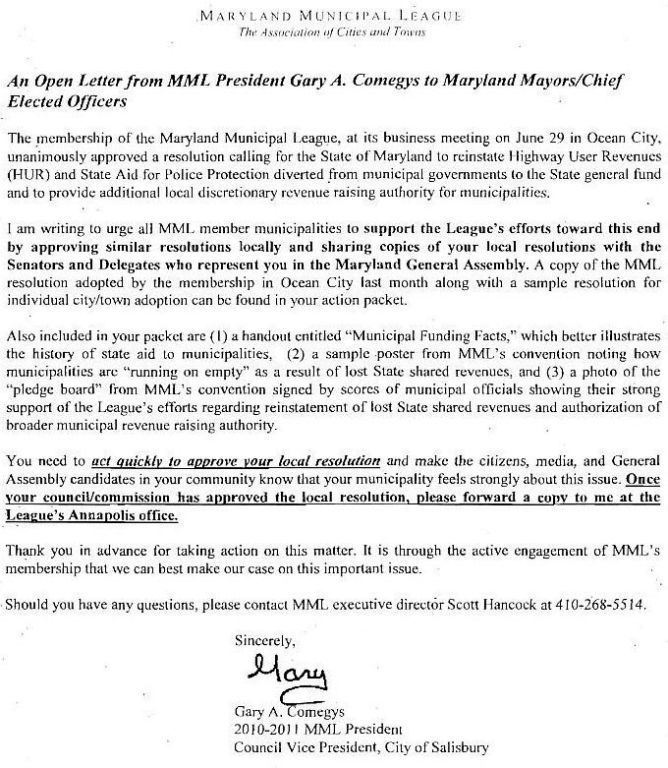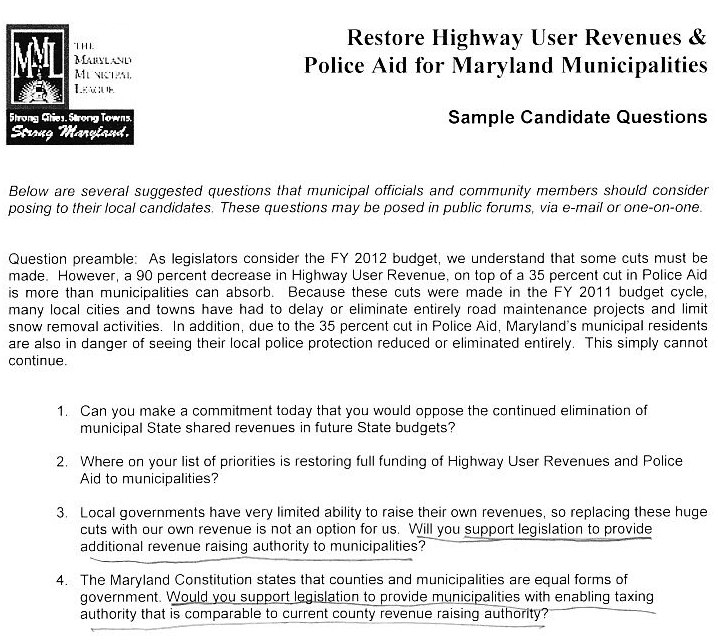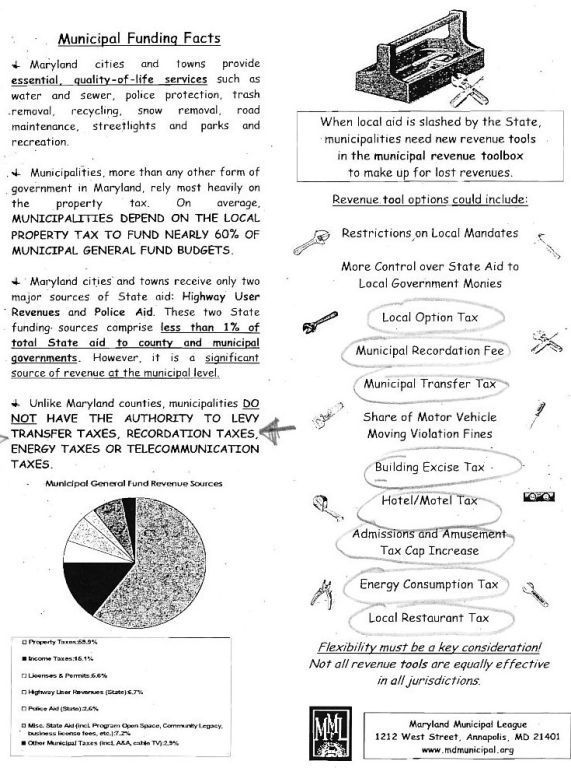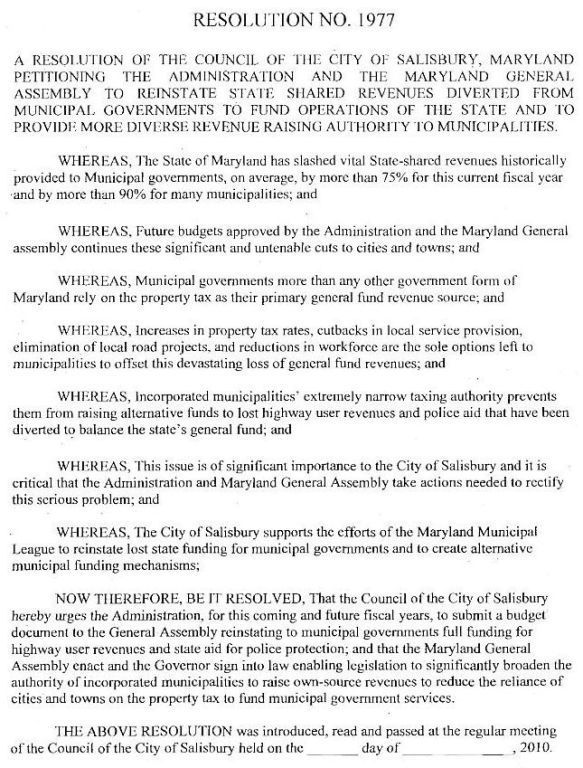This evening I kick off a four-part series where I ask the eight people seeking to become members of Salisbury City Council questions on what I feel are some of the top issues facing the city – a city where, as of last month, I became a resident.
All eight candidates had the same questions provided to them via the e-mail address they gave to the City Clerk upon filing. I have decided to list the answers in the order they were returned back to me – since Muir Boda and Bruce Ford were the first to respond their answers are listed first. If I haven’t received a response by press time this will say so; however, I’ll go back and add late responses retroactively to allow a candidate to set the record straight.
Because there’s a lot of candidates in the race, I decided to make this a four-part series where I ask two questions at a time – otherwise I may have a 10,000 word post and that’s way too long. I didn’t give the candidates a word limit on responses so they could answer as completely as they felt they needed to.
As I alluded to above, Muir Boda was first to the post, followed by Bruce Ford. The remainder are revealed in the order of reception, with seven of the eight represented – Michael Taylor has not responded as of this writing. Responses are edited as needed for formatting only.
Note: Joel Dixon got his answers to me shortly after I finished this early Tuesday evening. As promised, his responses are added to this post and will be sequential in future chapters. Tim Spies also sent in his answer to question 2 after the deadline for publication. Good thing this isn’t the print media!
Part one will deal with the first two questions I asked, beginning with this one.
1. If you were to prioritize the issues you’d like to address as a member of City Council from the group listed below, in what order would you place them (rank these 1 through 6):
- Cleanup of the Wicomico River
- Crime
- Infrastructure
- Job Creation
- Revitalizing Downtown Salisbury
- Taxation
Boda:
1. Crime.
2. Job Creation.
3. Taxation/Regulation.
4. Infrastructure.
5. Revitalizing Downtown.
6. Cleanup of the Wicomico River
Ford:
1. Crime – Salisbury is in a crisis regarding crime. Any other meaningful initiatives require us to reduce violent crime in the city first.
2. Job Creation – Once law enforcement agencies chase crime out of the city, which they will do, we MUST fill the void with hope. Not only do law abiding citizens deserve stable, well-paying jobs, jobs also allow the city to divert our at-risk populations from criminal activity towards employment and self-sustainability.
3. Taxation – Being careful stewards of the citizens’ tax money means both 1) reducing expenses wherever possible and spending wisely and 2) increasing tax revenues by attracting businesses and homeowners to the city.
4. Infrastructure – Modern business needs modern infrastructure. In my opinion taxation and infrastructure are closely related. I see infrastructure as an investment in business and quality of life in our neighborhoods, both of which mean increased tax revenue and decreased expenditures for upkeep of our municipal systems.
5. Revitalizing Downtown Salisbury – Revitalizing Salisbury as a place to raise a family will ultimately require revitalizing the Plaza and downtown Salisbury. I feel strongly that Salisbury is squandering its most unique and vital asset, it’s waterfront. One of the reasons I am promoting the “Together We Can Build A City” initiative is to develop large city-wide momentum behind expansive multi-year projects like developing the city’s waterfront and tying it into the Plaza and the City Park. There is too much value and potential in our waterfront to leave it ignored. With that said, the prior four priorities must logically be addressed first to create the framework upon which to develop the waterfront and downtown.
6. Cleanup of the Wicomico River – I value our environment and feel we should be good gatekeepers for the Wicomico River Watershed and the Chesapeake Bay. In terms of cleaning up the river itself, this requires multi-jurisdictional efforts with municipal, county, state and federal efforts. It can be done with vision and planning.
Mitchell: This is a little challenging because it is a lot like asking which of your children you love most. Nonetheless, I have ranked the items in the order I believe they should be addressed because of their interconnectedness and logical progression, rather than their relative importance. The rationale behind my “ranking” is as follows. We will have a difficult time bringing new businesses to Salisbury if we do not control our crime. Beyond that, I believe we have to be assertive in finding businesses that are willing to relocate to Salisbury. Even if they are not looking to relocate, they may be willing to do so if we create the right business environment and living conditions for the families of their employees. We already have a fantastic location and wonderful amenities here and in the surrounding area. Salisbury is a great place to be, but we have to market the city in such a way as to draw more businesses to Salisbury that will create those well-paying jobs. Bringing new business to Salisbury, which could help to infill the downtown business district if planned well, will help to improve our infrastructure. That will, in turn, attract more businesses. It is a concept known as “leapfrog” development. With increased revenue from the increased growth, we can minimize the need for additional taxes to pay for operating and capital expenditures. The increased income could help pay for special projects like cleaning up the Wicomico River, a move that has the potential to attract still more growth and tourism.
- Crime
- Job Creation
- Revitalizing Downtown Salisbury
- Infrastructure
- Taxation
- Cleanup of the Wicomico River
Cohen:
1. Crime
2. Job Creation
3. Taxation
4. Infrastructure
5. Cleanup of the Wicomico River
6. Revitalizing Downtown Salisbury
While I have other issues I believe are priorities as well, I chose the order of this specific group for the following reasons (in brief):
Number 1, Crime, affects lives at the deepest level (including those of our police officers), impacts the daily life of our citizens and inhibits our businesses from realizing their greatest potential. It discourages economic development, degrades quality of life and sucks our treasury dry for its abatement. It is a huge factor in being successful in achieving Number 2, Job Creation. Companies don’t want to locate in crime-riddled areas. Some say jobs reduce crime, and there is truth to that, but with the level at which Salisbury experiences crime, it needs to be reduced and removed as an obstacle to job creation. Number 3, Taxation, is somewhat vague as a topic, but I think of it as a focus on fiscal responsibility, an initiative for which I am already known in my actions on council. It also encompasses fairness for city taxpayers, revenue generation and wise use of resources.
Without a focus on these first three, it will be an even greater struggle to make progress on the next three. Whenever we work on an issue, let’s work smarter and not harder by accomplishing more than one goal at a time. I will be discussing all six of these in greater detail over the course of the campaign and on my website.
Spies:
1 – Crime
2 – Infrastructure
3 – Job Creation
4 – Taxation
5 – Revitalizing Downtown Salisbury
6 – Cleanup of the Wicomico River
1 – Crime
This is the issue upon which so many others depend.
While crime occurs throughout our city, a disproportionate share of our public services and tax dollars are diverted to areas and properties that have chronic crime problems. Ironically, many of those properties pay some of the lowest residential taxes. Those who shoulder a greater property tax burden, whether they be home or business owner, could be seen as actually subsidizing chronic problem properties with their tax dollars. Without a decrease in the crime that plagues us, more crime related services will be necessary, taxes will rise in reflection and everyone will pay more, including renters, as rents will increase to offset the landlords’ new property tax obligations.
I will speak more about crime in coming weeks. In the meantime, I invite you to go to my website, www.timspies.com, to read more about how I feel about it.
2 – Infrastructure
To look at it one way, our city’s infrastructure is what keeps us healthy (water and sewer), safer (streetlights) and mobile (streets). With each is the cost of operation, maintenance, replacement, repair and expansion of services.
We are fortunate that our water quality is excellent. While our water pressure is currently adequate, additional demand will require attention in the form of at least one additional water tower. The remainder of the water delivery system, primarily the underground mains, is old and frequently in need of repair. Much of it should be replaced, hopefully in concert with the large number of streets that are in need of resurfacing. Water and sewer funds are separate from the general fund, to which most taxes and fees are sent. We must find additonal funding from whatever source to enable us to complete the upgrades of our mains.
Highway User Funds, the money generated by motorist fees that comes to us through the state, were slashed by $450 million in 2009 to suit budgetary shortfalls. And in 2010, we saw a reduction of between 75 and 90% of municipalities’ funding all across Maryland, again to offset deficits. In response to this loss of working funds, funds on which we rely to care for our roadways, city government in late 2010 created and passed Resolution 1977, urging state administration to include in its annual budget full funding of highway user revenues for municipalities. We, along with many other Maryland cities and towns, await a definitive response from the state. Until then, as difficult as it may be, it looks as though we will have to continue to work with our limited resources while we strive to find more funding sources.
Streetlights are now in the process of being repaired and upgraded by both the city and Delmarva Power. If you have an non-operating streetlight on your street, get the number from the pole and report it to Delmarva Power or public works
I will later discuss the wastewater treatment plant.
3 – Job Creation is difficult when crime frightens employers away and unnecessarily stresses those already here. With economic times as difficult as they are, employers look for sites that offer minimum risk to ensure that their overhead remains the lowest it can be. We must use every tool at our disposal to reduce crime to sane levels, and continually look for, find and adapt new crime fighting strategies to fit our needs.
Meanwhile, we must otherwise become and remain prepared to suit new employers in other aspects: a population of job-ready candidates, educated and trained by our secondary schools and three nearby colleges, ensuring that those educational facilities and programs are attractive to employers in their own right; present a healthy infrastructure that will support the needs of industry; offer modest tax incentives to attract start-up companies and those wishing to expand their already existing businesses; investigate pay-as-you go possibilities for those requiring infrastructure additions and changes; maintain our city’s eye appeal so that a drive through is attractive rather than repellant; aggressively search for and be open to new ideas from all sources, in and outside of the box, and; encourage local businessmen with financial resources to stimulate interest and create new retail and service jobs with the understanding that their wealth depends on the health of our city and that they, as long-term stakeholders, may have a particular obligation to assist their city during troubled times, troubled times that will certainly pass more quickly with their help.
I am particularly encouraged by and use as an example the recent negotiations between the city and the Knorr brothers of Southern Boy Concepts, the gentlemen who operate a wildly successful brewery in Delmar and several popular restaurants in and nearby the city. By thinking outside of the box, an agreement was reached with Salisbury government that will not only bring new jobs to Salisbury, but an increased city tax revenue stream, a new, attractive destination for those who spend money here, and change a highly visible property from a potentially blighted one to one that speaks of thoughtful entrepreneurship and will to succeed even when the negatives seem to outweigh the positives. The creation of this craft brewery and attached restaurant in a high traffic area can serve as a positive model of successful partnership and understanding between business and government. I hope that others will follow suit and present ideas that are as original and that can take as full advantage of existing infrastructure and opportunity as this one has.
4 – Taxation
In a nutshell, here’s how I feel about taxation:
– Reel in foolish spending and we’ll have fewer obligations for which to tax;
– Spend on important things first, like our infrastructure and public safety;
– Borrow only when necessary and only in amounts that will be necessary to meet our needs and improve our revenue base. Leave extravagance at the doorstep.
5 – Revitalizing Downtown Salisbury
The bringing to life of our downtown is an issue that has many puzzled, and, frankly, I’m one of them. We’ve had lots of plans, but they don’t seem to spur the will of sufficient numbers of those movers and shakers who have the financial ability to carry them out. Why is that?
On the bright side, I am pleased to hear that a very successful local and regional business is considering opening a themed restaurant in the Downtown Plaza’s City Center. If it is all that it can be and creates a solid and expanding clientele base, it can act as a much-needed anchor for downtown, drawing more foot traffic and the strong and possibilities of more commerce.
While there have been improvements in the downtown scene in regards to activities, retail and community response, I would like to see more, and not just on Third Friday. We have a retail, arts and entertainment, residential and business corridor at our fingertips, ready to fill with people who seek something different. Bring on the ideas. Bring on the enthusiasm. Bring on the money.
6 – Cleanup of the Wicomico River
Ranked last of six not because it is unimportant, but because progress is being made and is high on the Mayor’s priority list to continue. With the recent removal of several sunken abandoned barges from the North Branch, it’s evident that the Mayor is keeping his promise of a clean Wicomico inside of ten years. I trust that his efforts will continue.
Stabilization of the river and tributary banks with native grasses and trees began as part of the Living Shoreline program in 2008. These plantings add erosion control and a biological filtration buffer, capturing multi-source contaminant runoff before it reaches the river. River water quality is affected by many factors, including the tidal nature of the river itself, surface stormwater runoff, upstream and downstream agricultural, industrial and residential chemical use, illegal and improper drainage and the discharge from our troubled wastewater treatment plant. All are currently being addressed.
I will keep close tabs on the Mayor’s continued efforts, and will pay close attention to recommendations of environmental experts and advocates. Should improvement efforts falter, I will be there to support their resumption at a level that befits our community’s desire to see the Wicomico healthy.
Dryden:
- Crime-is my number one concern for the city of Salisbury. I would like to work closely with the Chief of Police, the State’s Attorney’s Office and local law enforcement to confront this issue head on.
- Job Creation- if we can become known as a place that is a forward thinking, streamlined, and business friendly city, the end result will be a higher standard of living for our residents.
- Infrastructure- given the current budget restraints, It is going to be necessary to focus our resources on the most basic needs over the next few years while planning for the future.
- Revitalizing Downtown Salisbury- another issue that will only come to pass by inclusionary policies like inviting our local business people and residents to come to the table with a vision and creative ideas to bring back a local treasure.
- Wicomico River Clean-up – having grown up on a farm I have a great respect for the environment and realize that living on the Eastern shore is a gift and the Wicomico River deserves to be taken care of.
- Taxation – this is on the bottom of my list because new taxes are not a priority. Low taxes are a priority.
Dixon:
1. Crime
2. Job Creation
3. Infrastructure
4. Revitalizing Downtown Salisbury
5. Cleanup of the Wicomico River
6. Taxation
Taylor: No response at this time.
2. The wastewater treatment plant renovation has, simply put, been an unmitigated disaster for the City of Salisbury. How can City Council do a better job of oversight on this and other large-scale capital projects?
Boda: This is certainly a very sore subject. Simply put the City trusted the engineer and approved the project on good faith. It was most certainly a difficult decision and the decision was also based on regulations that were in place at that time.
We now have several things going against us. The upgrade has not performed as we were told it would. Second, the State of Maryland changed the law after after completion of the project and are demanding we be in compliance. We need to be tapping the resource of our elected representatives in Annapolis to help lobby on our behalf in either changes to the law or a special exemption due to our circumstances.
As far as large scale projects in the future, we need to make sure we have all the information before us with a variety of options. We need to make sure that everything is in compliance and wee need to know if there are any changes in the law or regulations looming in the near future.
Ford: The cardinal sin of making mistakes is to make the same mistake twice. To avoid the mistakes made with the WWTP, projects of any significant size and scope must be monitored by multiple sources of oversight. The cost of the WWTP has shackled the city for years if not decades and left many disturbing questions in its wake.
In the judiciary, judges recuse themselves when there is an appearance of impropriety even if they know in their hearts they can be impartial. This is to protect the integrity of the judiciary as a whole against the impression that it makes decisions based on factors other than the law.
Large projects must begin with a competitive proposal and bidding process, period. We must have experts review the proposals, then testify before the mayor and council to teach us how to make informed decisions on the material we are reviewing. A $40 million waste water treatment plant is an incredibly complicated and technical undertaking. We as citizen representatives must acknowledge our own limitations. The monumental cost of mistakes at this level more than justifies the cost of these oversight procedures.
City Council members in my mind are very much like judges. Our job, especially on projects like the WWTP, is to hear testimony and gather information from multiple sources and make informed decisions in the best interest of those we represent. If we do not accept input from all sides, we are doomed to make bad decisions.
Oversight mechanisms likely already exist for major projects in the city…competitive bids, audits, expert reviews, public input and so on. Those systems failed here because elected officials made poor, uninformed decisions. The ultimate oversight is the vote. Exercise it.
Mitchell: I would like to see, and have begun making investigatory contacts toward creating, a volunteer Citizen Review Panel to review and provide input on significant projects involving taxpayer funds. This panel would consist of professionals including, but not limited to, engineers, architects, accountants, realtors, developers, environmentalists, bankers, geographic information system (GIS) experts, information technology (IT) consultants, etc. While this panel would have no authority to accept or reject projects, their recommendations would be highly valued by the Council. Of course, alternates would be required because no person or company could consult on a project with which they are otherwise involved. The panel would meet as needed to review project proposals from an independent, professional standpoint to alert the City of potential problems or shortcomings in the plans. In the case of the WWTP, such a review panel would likely have caught sight of some of the red flags and design flaws and been in a position to alert City officials to the potential problems before the contract was even signed, certainly before the plant was built.
Cohen: Oversight is an important component of a council member’s job, despite accusations of “micro-managing.” As elected representatives, council members are accountable directly to the public for their decisions, unlike the staff. The mantra of “trust the staff” does a disservice to both elected officials and appointed or hired staff. Through well-defined policy and oversight, staff is empowered to do its job better, with clear direction. Good communication from the administration can help council create the framework for better risk management.
We have had some forward movement in this area, but not enough. The WWTP taught the City the importance of evaluating liability clauses in contracts to ensure better protection of the citizens’ interest. Thanks to a conversation I had with a gentleman in the construction trade, I urged that performance bonds more consistently be included in the City’s contracts. The City must be a fair, but firm, negotiator with vendors. I’ll continue to pursue and encourage improvements in our contractual processes.
Spies: Looking back, the wastewater treatment renovation served us a lesson that we’ll live with for decades.
Looking forward, we need to keep those lessons in mind through each step of the process, including the adequate vetting of new technology and, certainly, minimizing our financial risk should there be a performance problem after the fact. I believe that what one pays for, one should get, and that those contractually providing a product or service should be held to standards that sufficiently protect the public dollar and the public at large.
Dryden: Spending tax payers hard earned money is difficult under any circumstances but certainly something of this magnitude merits much time, research, and effort. Perhaps with future large scale projects the City of Salisbury may need to establish a new system of checks and balances with a specific plan for obtaining the proper advice necessary to make informed decisions.
Dixon: The City Council, as well as the Mayor’s Office, can do a better job of oversight on large-scale capital projects by doing their homework on the project. That includes researching the company, looking at projects completed by cities comparable to Salisbury, and more carefully reviewing contracts prior to awarding bids. There should be no contract clauses limiting the vendor’s liability. After the project starts the company working on the project, as well as the department involved, needs to be held accountable to see it through to successful completion.
Taylor: No response at this time.





